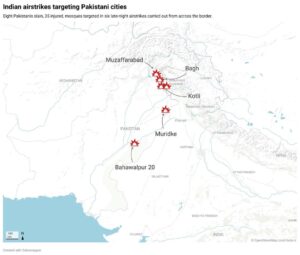China Increasing Ties with Central Asia with the Declining Russia

Central Asia is thus experiencing a geopolitical transformation in which countries such as Kazakhstan and Uzbekistan are shifting their focus to China’s model of development in search of stability that will diminish Russia’s hegemony. Most of this shift can be attributed to the China-launched Belt and Road Initiative (BRI).
Modern talks between Kazakhstan’s head of state, Kassym-Jomart, Tokayev, and China’s head of state, Xi Jinping, in the format of a telephone conversation for the past few days have touched upon such aspects as trade, energy, and the digital sphere. Kazakhstan has improved its relations with China in the sphere of economic cooperation through the signing of significant contracts; Uzbekistan has been improving its energy and transport industries through huge China investments. According to the estimates, the energy exports of Kazakhstan may increase by twenty percent by 2025 thanks to Chinese-financed infrastructure projects. Over the next three years, China is to invest more than $5 billion in Uzbekistan; thus, the two countries will become new economic poles in the region. However, the government is dosing partnerships on this line as there is a worry over debts from these firms.
According to some forecasts, Kazakhstan’s public debt can amount to 28 percent of GDP in 2026, mainly due to Chinese loans. The former Kazakh Prime Minister Karim Massimov also highlighted the same views and said, “These cooperations are necessary for economic development, but it is important to handle the condition of being dependent only on one partner.” Leading scholars believe that this circumstance may alter the balance of power in Central Asia as China’s position in it continues to strengthen due to the retreat of Russia. In the coming twenty years, China could possibly contribute more than 40 percent to total Kazakhstan’s trade. Nevertheless, what is supposed to be created by such partnerships are thousands of job openings and increased economic activity within the region.
Source: Reuters, Al Jazeera



